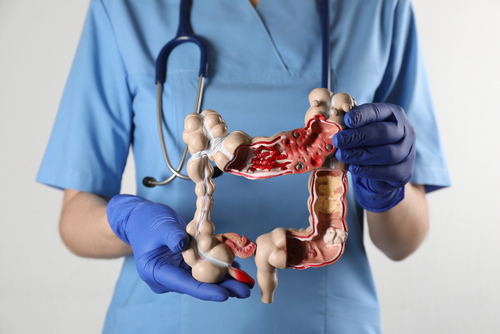Gastrointestinal Services
Many Americans suffer with gastrointestinal (GI) disorders. They may suffer unnecessarily for years instead of taking simple steps to diagnose and treat their condition.
We diagnose and treat the following:
Bowel incontinence
Cancers of the esophagus, stomach, intestine, and rectum
Cirrhosis
Colitis
Colon cancer
Constipation
Diarrhea
Hemorrhoids
Hepatitis
Gallstones
GI bleeding
Irritable bowel syndrome
Pancreatic disease
Polyps (tumors)
Proctitis
Strictures
Ulcers
Methods of Diagnosis and Treatment
Diagnosing a gastrointestinal disorder is an important first step towards treatment. Whittier Hospital Medical Center offers several methods for diagnosis and treatment including:Colonoscopy:
A colonoscopy gives physicians a view of your lower digestive tract, which is comprised of the colon and rectum.
Physicians may use a colonoscopy to evaluate:
Abdominal pains
Change in bowel movement habits
Determine a cause for blood found in stools
Screen for colon cancer
According to the National Cancer Institute, colorectal cancer is the fourth most common cancer in both men and women. Colonoscopies are an important procedure because they can assist in the screening, prevention, and diagnosis of colorectal cancer. If polyps are found and removed, they may prevent the development of colorectal cancer.
EGD (upper endoscopy):
An EGD, also known as an esophagogastroduodenoscopy, is a procedure that uses a small flexible scope with a camera at the end to look at several passage ways in the body: the small intestine, esophagus, and stomach.
An EGD will allow physicians to identify causes of:
Heartburn
Internal bleeding
Abdominal pain
Problems swallowing
ERCP:
Used to help diagnose disorders of the pancreas, bile ducts, liver, and gallbladder. Stones or other blockages may be removed through the use of stents or extraction.
Sigmoidoscopy:
Recommended as part of a routine screening for older individuals, Sigmoidoscopy is used for viewing the rectum and sigmoid colon for the diagnosis of colon disease.
Technology:
Whittier Hospital Medical Center offers technology designed for detecting, diagnosing, and treating your gastrointestinal disorder, as well as making you as comfortable as possible throughout your procedure.
Argon plasma coagulator
Bispectral Monitoring
Digital fluoroscopy
Conscious sedation

